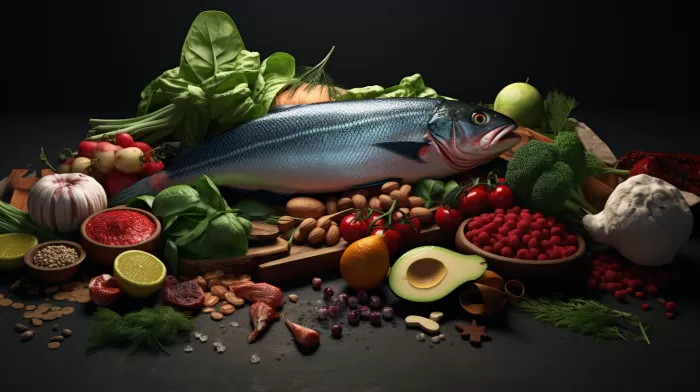Inflammation has a bad reputation, but it can also be a good thing. When the body is injured or invaded by pathogens, inflammation is one of the first lines of defense. The pain, swelling, and redness are signs of our focused repair mechanisms.
Like every system in the body, the key is balance — because inflammation does have a serious downside. It’s a slippery slope: A normal healing response can progress to an ongoing inflammatory process that spreads throughout the body under the right (or rather, wrong) conditions. Acute inflammation results from a specific injury and subsides with that injury. Prolonged or chronic inflammation reflects an imbalance in this critical response system. And it can drive premature aging and obesity as well as diseases, including aggressive cancer, autoimmune disease, diabetes, Alzheimer’s disease, and heart disease.
The problems
Whether it is a bruise or bacteria, the body responds rapidly to any perceived threat. Signaling proteins such as cytokines put the body on emergency alert. Cytokines tell cellular DNA to trigger specific changes, including the release of more cytokines. Cytokines also promote oxidation, another useful immune mechanism that can wreak havoc when the process becomes imbalanced. Overoxidation creates an excess of unstable free-radical molecules, which can damage DNA and increase inflammation.
A number of risk factors for chronic inflammation, including toxin exposure, heavy metal body burden, long-term infection, smoking, obesity, inflammatory foods, and allergies. These challenges put the immune system on high alert, but such a defensive position is not sustainable over time. As a result, the constant flow of DNA-adjusting cytokines has a cumulative effect and can rapidly damage health.
Poor circulation is a secondary risk factor for chronic inflammation since impairments in the circulatory system can cause hyperviscosity (blood stickiness). When inflammation and hyperviscosity combine, they can negatively affect every system in your body, compromising the immune system and leaving you vulnerable to disease. So we can begin to see how balance in the relationships between circulation, inflammation, and immunity is critical for long-term health. Luckily, many of the natural solutions discussed below can support these highly interrelated systems simultaneously.
Lifestyle factors
A number of studies have shown that visceral fat, the weight we carry in our midsection, contributes to inflammation and vice versa. This is a significant risk factor in metabolic syndrome (aka prediabetes), a skyrocketing epidemic related to chronic inflammation, cardiovascular disease, obesity, insulin resistance, and other factors. To make matters worse, elevated levels of the stress hormone cortisol join forces with visceral fat to produce even more inflammatory cytokines.
Processed and fried foods and those that have been grilled too much are high in advanced glycation end products (AGEs), which trigger oxidation and inflammation. As the acronym suggests, these glycotoxins promote premature aging and disease, particularly when consumed in excess.
Fight with food
Making good food choices can be a one-two punch against inflammation. First, we need to reduce the amount of processed and overcooked foods we eat. But we should also be mindful of what we’re eating and be sure to consume quality protein, particularly cold-water fish to increase levels of inflammation-busting omega-3 fats; nuts, whole grains, fruits, and vegetables, particularly the leafy green variety. These foods are high in antioxidants and anti-inflammatory compounds, which will help counteract the effects of glycotoxins, free radicals, and inflammatory proteins.
Phytonutrients from plant foods tend to be high in antioxidants and other powerful health-promoting compounds. Richly colored foods like tomatoes, squash, yams, peppers, blueberries, and strawberries are excellent sources. Cruciferous vegetables, such as broccoli, kale, and cauliflower, are also recommended. Probiotic foods such as yogurt, sauerkraut, miso, and kimchee help maintain the balance of healthy flora in our bodies and can help control inflammation and weight gain, enhance immunity, and even boost mood.
Reduce stress
Chronic stress can flood our bodies with cortisol and other stress hormones associated with the fight or flight reflex, which has a direct link to inflammation as well as obesity. Adopt practices that promote a lasting sense of inner peace such as mindful meditation and breathing practices, yoga, tai chi, long walks, swimming, and more.
Don’t forget to rest. Sleep is the body’s natural path to rejuvenation. Even if we eat well, exercise, and control stress, lack of sleep can undo all of these efforts, triggering chronic inflammation and other long-term damage.
Detoxifiers and antioxidants
In addition to cytokines, there are a number of other proteins produced by the body that can fuel inflammation. One of these proteins is called galectin-3. When elevated beyond normal levels, galectin-3 can trigger chronic inflammation leading to fibrosis (uncontrolled scar tissue buildup) throughout the body. This “rogue molecule” is a prime culprit in metastatic cancer and heart disease, as well as kidney fibrosis and other pro-inflammatory conditions.
A natural supplement that controls galectin-3 is modified citrus pectin (MCP). MCP is derived from the pith of citrus peels such as oranges, lemons, limes, and grapefruit. It is modified for better absorption into the bloodstream. Numerous studies have shown that MCP effectively blocks the pro-inflammatory and pro-cancer effects of excess galectin-3.
Antioxidant supplements, such as alpha-lipoic acid, glutathione, acetyl L-Carnitine, and vitamin C can help reduce oxidation and fight free radicals, providing powerful anti-inflammatory effects. Botanicals like curcumin from turmeric, the bioflavonoid quercetin, and honokiol extract from magnolia bark are potent antioxidant and anti-inflammatory ingredients.
A traditional Tibetan herbal formula has also been shown to promote healthy responses to inflammation and support circulation, immunity, and healthy inflammation responses.
Chronic inflammation requires a holistic, lifestyle approach. Gradually incorporating small refinements into your daily routine can make a big difference: eat more vegetables, reduce processed foods, practice healthy stress relief, and look for supplements that reduce inflammation, boost circulation and fight free radicals. The potential gains of such healthy improvements will ripple into every area of life, offering increased vitality, energy, and vibrancy on physical, mental, and emotional levels.



